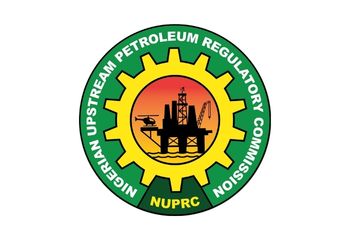Stakeholders in Nigeria’s oil and gas industry have been charged to deploy new technologies to leverage big data in order to optimize hydrocarbon recoveries and achieve maximum returns investments.
The Commission Chief Executive, Nigerian Upstream Petroleum Regulatory Commission (NUPRC), Gbenga Komolafe, made the call at this year’s Nigeria International Energy Summit (NIES), in Abuja.
Komolafe, who spoke at the Data to Barrel Forum, said the key focus is in having valuable information that translates to increased oil and gas recovery.
He noted that since big data affects almost all aspects of human endeavour, the oil and gas industry has significantly moved in the direction of acquisition of big data, to explore, capture, develop, produce hydrocarbons, and monitor reservoir performance and surveillance in real time.
He said: “Data to Barrel is basically digital transformation that goes beyond digitalization; it involves integrating big data, technology and people to generate Value of Information (VOI), using data to optimize asset management in order to boost performance, and thereby empowering people to make faster business decisions.”
For instance, with 4D seismic surveillance, using nodal seismic technology, real-time seismic data is collected at periodic intervals to interpret for the reservoir effect as a result of injection-production in a reservoir. This process helps in reducing cycle time in decision-making on reservoir performance.
Therefore, the key challenge for service providers in producing oil companies is to demonstrate the value that gathering additional data will bring to the asset, he added.
Optimizing production
Komolafe informed that the development and use of Artificial Intelligence (AI), through generating new and robust mapping applications, requires big data and supercomputing technology.
He said this helps to decide investment in the right prospects, development of a robust Field Development Plan (FDP), drilling and completions in safe and cost-efficient operations, all in order to optimize production and meet daily deliverables.
Quoting the U.S. Energy Information Administration (EIA), he said petroleum energy remains the largest source of energy, though its share of world-marketed energy is in decline from 33% in 2015 and projected at 31% in 2040.
He said the development presents a huge opportunity, and urged Nigeria to make haste to harness fossil fuel energy while it is still relevant, as no era lasts forever.
He however argued that “the key challenge is using mass data to meet Nigeria’s energy needs and increase proven reserves by ensuring that our oil and gas resources are not left behind in the subsurface without being beneficial in a timely manner for the nation.”
…the oil and gas industry has significantly moved in the direction of acquisition of big data, to explore, capture, develop, produce hydrocarbons, and monitor reservoir performance and surveillance in real time.
NUPRC preparedness

Against this backdrop, Komolafe said the NUPRC is fully prepared to harness the Big Data through its National Data Repository (NDR), which serves as the data warehouse for Nigeria’s oil and gas industry.
He said: “NDR facilitates data for bid rounds in line with the statutory mandates of the NUPRC under the PIA to prospective investors, thus enabling informed investment decisions and shortening upstream business lifecycles.”
Furthermore, he said the NDR has birthed more data-related initiatives including the National Improved Oil Recovery Centre (NIORC) focussed on utilizing big data to drive reduction in cost per barrel, and the Integrated Data Mining and Analytics Centre (IDMAC), set up to assess and analyse data for informed business decisions.
Asides the NDR, he said the Commission also has the National Production Monitoring System (NPMS), an electronic system that is deployed to monitor oil and gas production in Nigeria. This ensures accurate and reliable reporting of crude oil production.
“The Commission in collaboration with other relevant agencies is in the process of upgrading and deploying the NPMS facility towards curbing crude oil theft in Nigeria,” he added.
Also, the Technological Adaptation Unit within the Engineering and Standards Department engages service providers on new technologies that can be implemented in the Nigerian Petroleum Industry.
…given the shift from fossil fuels due to its environmental impact, oil producing nations without the appropriate economic model may be the worst hit.
NUPRC in transition era
Meanwhile, NUPRC has assured of its preparedness to address key issues necessary for industry growth, stability and sustainability.
Komolafe said this requires stakeholders’ collaboration to maximise the gains of industry reforms in an era of global energy transition, which calls for resource optimisation to achieve the 2030 target.
Accordingly, he said the target is to increase oil reserves to 40 billion barrels, up from the current 37 billion barrels; grow gas reserves to 210 trillion cubic feet (TCF) against 206 TCF; raise daily oil production capacity 3 million barrels from 2.3mbd.
During the NUPRC Strategic Dialogue with the Industry, the Commission Chief Executive noted that given the shift from fossil fuels due to its environmental impact, oil producing nations without the appropriate economic model may be the worst hit.
He argued that the Petroleum Industry Act (PIA), has brought significant succour for Nigeria, in terms of legal framework, governance, administrative framework, and attractive fiscal regime.
The Act therefore empowers NUPRC as the regulator of upstream petroleum operations to promote an enabling environment for investments to thrive in the sector.


